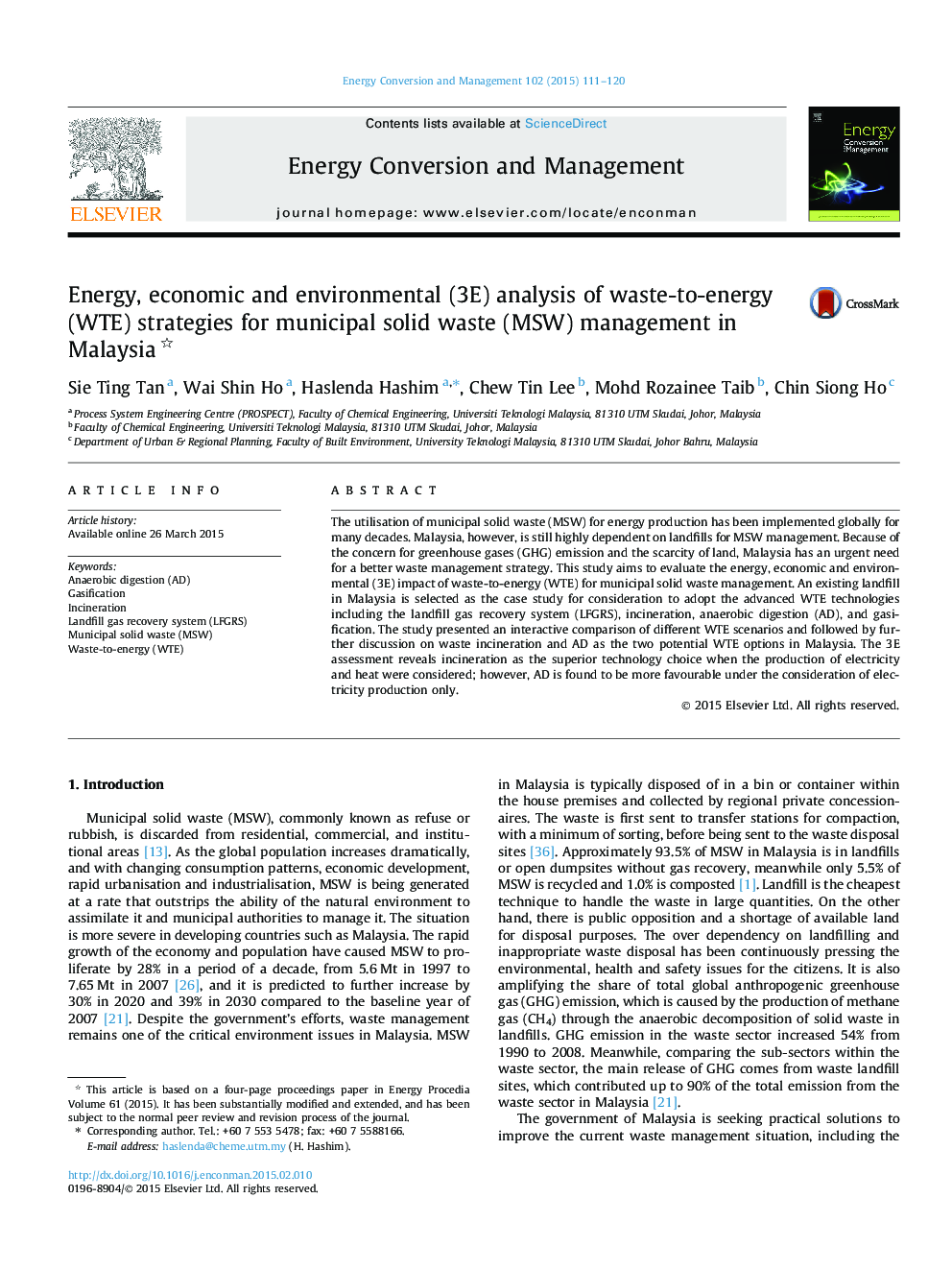| Article ID | Journal | Published Year | Pages | File Type |
|---|---|---|---|---|
| 763539 | Energy Conversion and Management | 2015 | 10 Pages |
•3E impact of WTE derived from MSW were performed.•MSW treatment technologies significantly effects the economic and environmental benefits of WTE.•Different scenarios are conducted based on the waste projections and production.•Comprehensive discussion on the trade-off of both incineration and anaerobic digestion for MSWM.
The utilisation of municipal solid waste (MSW) for energy production has been implemented globally for many decades. Malaysia, however, is still highly dependent on landfills for MSW management. Because of the concern for greenhouse gases (GHG) emission and the scarcity of land, Malaysia has an urgent need for a better waste management strategy. This study aims to evaluate the energy, economic and environmental (3E) impact of waste-to-energy (WTE) for municipal solid waste management. An existing landfill in Malaysia is selected as the case study for consideration to adopt the advanced WTE technologies including the landfill gas recovery system (LFGRS), incineration, anaerobic digestion (AD), and gasification. The study presented an interactive comparison of different WTE scenarios and followed by further discussion on waste incineration and AD as the two potential WTE options in Malaysia. The 3E assessment reveals incineration as the superior technology choice when the production of electricity and heat were considered; however, AD is found to be more favourable under the consideration of electricity production only.
Graphical abstractFigure optionsDownload full-size imageDownload as PowerPoint slide
